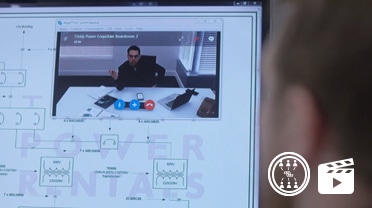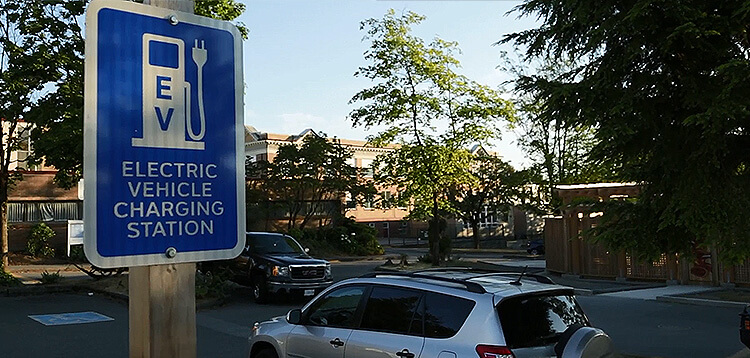- OUR APPROACH
-
COMMITTED TO YOUR SUCCESS
Our approach, developed over decades of experience, is fine-tuned to get the results you want.
We deliver concept-to-completion solutions, designed by temporary power specialists with access to the largest inventory of high-quality power generation and distribution equipment in North America.
-
- Equipment
-
RENTALS
From a wide range of diesel and natural gas generators to transformers, cable, light towers and more, our large rental fleet and extensive vendor network ensure we’ll have the temporary power equipment that your project requires — every time.

-
- Industries
-
INDUSTRIES WE SERVE
For nearly 20 years, we have been at work powering projects across Canada’s industrial sectors.
Select from this sampling of industries to learn how we can put our expertise to work for you.
VIEW ALL- Projects
- About
-
A PROUD HISTORY. A BRIGHT FUTURE.
From our inception in 1998, we have been building our team on a foundation of excellence. Our team members’ passion, expertise and commitment are what have allowed us to grow into a national company with projects across Canada.
Click on the links to learn more about our history, our team or our career opportunities.
- Blog
- Contact
-
It’s alive. In the five years between “Who Killed The Electric Car?” (2006) and “Revenge Of The Electric Car,” (2011) the electric vehicle (EV) has come back from the nearly dead, and it’s no coincidence that the rise of the smart grid—the result of increasing investment, research and uptake in the renewable energy sector—comes right up with it. What are the opportunities for Electrical Contractors in this growing market?
Renewable energy generation and more efficient, increasingly inexpensive power storage technologies are here to stay, two things EVs rely on for functionality and commercial viability. In this particular “chicken or egg” scenario, the “chicken” is EV/smart grid uptake and the “egg” seems to be technology and cost. One of our recent blog posts The Next Big (Battery) Thing: The Li-ion, Al-air and Solid-state Wars notes that most of the power storage and generation R&D these days is going into batteries and renewable energy for EVs and power grids and that renewable energy continues to build its share of the global electricity market, partly due to higher efficiency and capacity and lower technology costs—including right here in Canada and in the US.
The big picture: Smart grid pilot and demonstration projects are being deployed worldwide at an accelerating rate, partly because of increased government funding and/or job creation programs. As the bandwagon gets increasingly crowded, with governments, municipalities, corporations, startups and consumers jumping on, there are opportunities for utilities, independent power producers, regulators, manufacturers and the building industry—which is where the electrical contractor comes in.
The smart grid opportunity: The new and modified infrastructure of a smart grid needs the installation of new components and tech, or retrofitting, to integrate with the existing conventional grid, and to be compatible with a future wider smart grid network. Next-gen smart grids are demand-responsive—using a combination of software and both analog and digital technology to reduce electricity waste and energy costs in existing and new gridlines. For example, EV charging stations, wherever they are located, will have smart meters that can access variable and distributed sources of energy; the power flow is based on a monitoring system that measures demand and availability across the smart grid and allocates power distribution accordingly.
The EV opportunity: While recharging, EVs need to be plugged into a smart grid that allows the vehicles to charge when rates are low or to charge from stored battery power, lessening the chance of grid overload (an often-quoted warning from EV and smart grid naysayers). EVs on a smart grid can also be used as distributed storage devices, either to feed electricity stored in their batteries back into the system when needed (vehicle-to-grid), or for in-home or in-office use (vehicle-to-home). TechRepublic summarizes the challenges pretty well—mainly, uptake comes down to how quickly new tech can be commercialized (including battery storage), and how quickly smart grid infrastructure and tech can be deployed across all outlets, including integration with billing, insurance and other logistics.
What’s in it for electrical contractors? You go where the customers are, and according to a 2012 Angus Reid poll, most Canadians want smart grids and smart homes. About a quarter of respondents were likely to buy, lease or rent an EV, which means electrical contractors are needed to retrofit existing homes, businesses and public areas, or to integrate charging stations into newer builds and proposed developments. How much money in the pocket are we talking about? Another report posted on GreenBiz provides a pretty clear breakdown of electrical contractor labor, materials and related costs for charging station and smart grid installation and maintenance.
What support do electrical contractors get? If you’re looking for tech and implementation guidelines, market research, potential contracts or partnerships, check out:
Across Canada
- SmartGrid Canada, a national coalition of governments, utilities, industry and schools
- SmartGrid Roadshow, an annual conference for tech and training
- Standards Council of Canada “Canadian Smart Grid Standards Roadmap” with deployment guidelines for utilities, manufacturers and contractors
In Western Canada
- The British Columbia Electric Vehicle Smart Infrastructure Project —already underway, this BC Hydro-backed initiative plans to deliver 300 public charging stations in urban areas, 30 fast charging stations along major transportation corridors and a data network “EV Cloud” which will centrally collect and monitor charging data. Future smart grid expansion and rollout of smart charging sites (this demonstration project is in partnership with Greenlots from Surrey, BC-based Powertech Labs) and grid integration will certainly need more partnerships with contractors at regional, municipal, business and consumer levels.
- BC Hydro’s soon-to-be-released “Charging Infrastructure Guidelines” for electrical contractors installing or retrofitting home charging stations.
- Electric Vehicle Charging Infrastructure Deployment Guidelines British Columbia from Plug-In BC.
What’s the outlook for EV and smart grid rollout for Canada? Smart grids are already being piloted on a large scale in BC and Ontario, with smaller projects in Alberta and Saskatchewan. Here’s what Andy Cleven, Training Director at the Electrical Joint Training Committee, has to say about the impact of smart grids, EVs, renewable energy and battery storage on the industry—take a look.
Related Articles
Subscribe for access to exclusive content
















